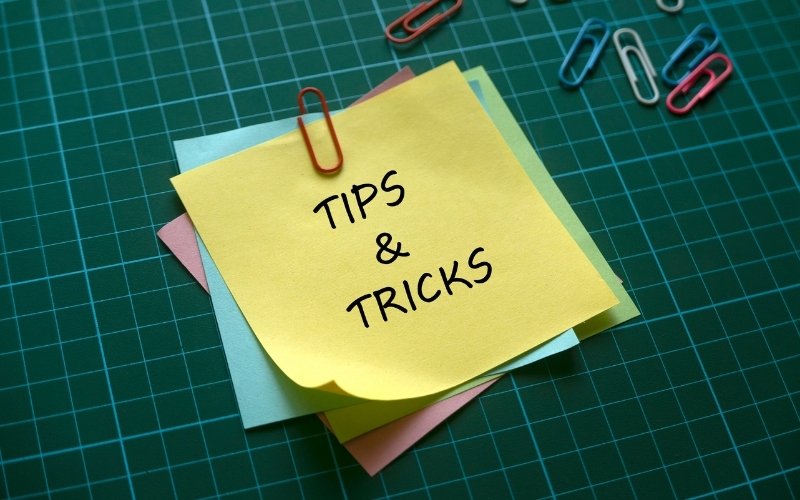Tips for Cold Calling:
Cold calling might feel like venturing into the unknown, especially if it is your first time. The idea of picking up the phone and introducing yourself to someone you’ve never met might be intimidating, yet it’s still one of the most successful methods to engage with new clients. Despite all the digital tools we have today, cold calling is still an effective way to build connections and generate leads. What’s the secret to success? Telesales training and preparation. You can turn tough first calls into productive conversations by preparing your approach, knowing your prospects and building confidence. In this guide, we’ll provide cold calling tips to help you prepare for your first cold call like a seasoned professional—without worry.

1. Research Your Prospects Beforehand:
Cold calling is most effective when you know who you’re chatting with and why they might be interested in what you have to offer. Before you pick up the phone, learn more about your prospect. Check their corporate website, look them up on LinkedIn, and keep track of any current news or updates regarding their firm. Do they encounter problems that your product or service can solve? Are they in the correct industry or in a position to make decisions? Gathering this information allows you to tailor your call, making it feel more like a meaningful discussion rather than a haphazard pitch.
2. Create A Clear And Concise Script:
Having a script doesn’t mean you’ll sound like a robot—it’s there to keep you on track and make sure you cover the essentials. Start by writing an opener that introduces who you are and why you’re calling, but keep it short and friendly. For example:
“Hi Larry, this is Amanda from FLST. I noticed [personalised detail, like a recent achievement or challenge] and thought it might make sense for us to have a quick chat.”
Next, outline a few key questions to ask; these should help you understand their needs and show that you’re listening, like:
“What are the main challenges you’re currently facing with [specific issue]?”
“What’s your top priority when it comes to [relevant topic]?”
End with a clear goal, whether it’s booking a meeting or sending them more details. For instance:
“I’d love to explore this further. Would it be alright if we set up a quick meeting next week?”
Remember, your script is a guide, not a rigid rulebook. Leave room for natural conversation so it feels genuine.

3. Set A Specific Goal For Each Call:
Before you dial, know what you want to get out of the call. Are you looking to book a meeting, send over some info or just introduce yourself and your company? Having a goal keeps you focused and guides the conversation. It also stops you from feeling lost if the prospect doesn’t respond the way you expected. Your goal doesn’t always have to be a sale – sometimes, it’s just about making a connection or opening the door for future conversations. Whatever your goal, make sure it’s realistic for a first call and adjust as needed.
4. Practice Active Listening:
One of the most critical skills in cold calling is careful listening. It’s easy to think about what you’re going to say next, but it might make the discussion appear one-sided. Instead, listen to what’s on the other end of the line. Let them talk about their wants, issues or concerns without interrupting. Ask follow-up questions or repeat what they said to make sure you understand. This makes the call feel more like a genuine discussion than a pitch, which helps to create trust. Active listening allows you to adapt your replies, making your call far more productive.
5. Start With A Strong Opening:
The initial few seconds of a cold call may make or break the discussion, so start strong. Begin by introducing yourself and your organisation in a calm, courteous manner. Instead of getting into a sales pitch straight away, try to tailor your opening statement. Mention something relevant to them, a recent achievement, a common connection or a problem they may be facing.
A good intro not only grabs their attention but sets the tone for a productive and natural conversation. Keep it short, simple and to the point so they know you respect their time.
6. Handle Objections Confidently:
Objections are a normal aspect of cold calling; don’t let them deter you. Instead of viewing them as a barrier, consider them a chance to better grasp the prospect’s issues and provide answers. Keep your composure, pay close attention, and avoid interruptions. For example, if someone answers, “I’m not interested,” ask, “Could you tell me more about what you’re currently using or looking for?”. This keeps the conversation open and demonstrates your willingness to listen.
Do not get defensive. If they express concern, acknowledge it before responding. You can say, for example, “I understand budget is a concern—many of my clients felt the same at first, but we’ve been able to help them save in the long run.” By addressing their concerns in a respectful and confident manner, you demonstrate that you are there to serve, not sell. Objections do not indicate the discourse is done; they are simply part of the process.
7. Keep Your Tone Friendly And Professional:
When cold calling, your tone of voice may make all the difference. A friendly and approachable tone puts the person on the other end of the at ease, whilst a professional demeanour demonstrates that you value their time. Avoid sounding too official or too casual; instead, establish a balance that feels natural but courteous.
Smile while you speak (yes, they can hear it) and maintain your energy without being overwhelming. If the person sounds busy or hesitant, acknowledge it. Saying something like, “I understand you’re probably in the middle of your day, so I’ll keep this quick,” demonstrates consideration, which may go a long way towards making a good first impression.

8. Follow Up Consistently:
Cold calling does not stop when the call is done. Following up is equally vital as the original conversation. Many potential clients require time to consider, research, or discuss before making a choice, and a polite follow-up keeps you on their minds. Aim to follow up within a few days to remind them of your conversation and maintain the momentum.
Make your follow-ups more personal. Refer to what you covered on the call and provide something valuable, such as further information, a case study, or answers to their queries.
Consistency is important, but don’t overdo it. A well-timed email or phone contact communicates professionalism and attention without being aggressive. Persistence might sometimes be the difference between you and your competitors.
9. Track And Analyse Your Performance:
Cold calling is a skill that can be improved with practice, but only if you measure your progress. Keep a log of your calls, including who you spoke with, how the discussion progressed, and the conclusion. Did they schedule a follow-up, request further information, or refuse outright? This information allows you to see trends in what works and what doesn’t.
Consider data such as the number of calls you make, how many result in additional action, and the times or days when you receive the best answers. If you’re on a team, swap notes with your colleagues to discuss effective strategies.
It’s also useful to evaluate your own performance. Were there any instances during the call where you felt stuck or unsure? Use such times to improve your approach.
10. Stay Persistent And Positive:
Cold calling is hard, and it’s easy to get frustrated when you get rejected. But patience is often the key to success. Not every call will go your way, which is fine – it’s all part of the process. Remember, developing relationships takes time, and a no today does not mean a no forever.
Stay positive by focusing on small wins – having a good conversation or learning something new about a prospect. If a call doesn’t go well, take a minute to think about what you could have done differently, but don’t dwell on it. Shake it off and move on to the next one.
Remember, the person on the other end of the phone has no idea how many calls you’ve made or how many rejections you’ve received; they’re only hearing this call. Approach each interaction with new energy and passion, and it will show in your tone. Persistence and a positive mindset will always yield results.
Ways To Prepare For Your First Cold Call?
Understand Who You are Calling:
Don’t simply pick up the phone and hope for the best. Before you call your prospects, do some research on them. Discover who they are, what their company does, and whether they require your product or service. This will allow you to personalise your approach and demonstrate to the person on the other end that you have done your homework.
Set a Clear Goal:
Before you begin the call, decide on your goals. Do you want to schedule a meeting, offer your product, or learn more about their needs? A clear purpose will keep you focused and make the talk more fruitful.

Write Down Key Points:
Instead of using a full script, jot down a few bullet points to help you. Include a brief introduction, a few questions, and a strong closing statement. This will keep the conversation flowing and help you stay on target.
Prepare for Common Objections:
Consider the reasons why someone may hesitate to communicate with you or say no, such as being too busy or unsure about your offer. Prepare courteous and effective responses to these issues.
Get into the Right Mindset:
Cold calling relies on both attitude and preparedness. Take a moment to clear your head, smile, and remind yourself that you’re not simply marketing; you’re delivering something that can actually help. A confident and positive tone can make a significant difference.
FAQs
How To Make Your First Cold Call?
Making your first cold call can be nerve-wracking, but breaking it into manageable steps makes it much easier. Start by doing your research on the person or company you’re calling. Prepare a short introduction that explains who you are and why you’re calling. Focus on asking open-ended questions to learn about their challenges and needs rather than pitching your product straight away. Stay calm, keep your tone friendly, and don’t worry if the conversation doesn’t go perfectly—each call is an opportunity to learn and improve. If you are having trouble with this, our sales training courses can teach you all the cold calling techniques needed to be a pro.
What Are The 3 C's Of Cold Calling?
The 3 C’s of cold calling are Confidence, Clarity, and Curiosity:
- Confidence: Believe in what you’re giving and present yourself confidently. Prospects are more inclined to interact when you sound confident in yourself.
- Clarity: Be clear about why you’re calling and what you’re offering; avoid unnecessary jargon and keep your message simple.
- Curiosity: Show genuine interest in the prospect’s needs. Ask thoughtful questions and listen carefully to their answers to build a meaningful conversation.
How Do You Mentally Prepare For Cold Calling?
To prepare mentally for cold calling, change your mindset. You’re not just selling; you’re providing a solution. Visualise the good outcomes and tell yourself rejection is part of the process and not a reflection of you. Take a few deep breaths or pause for a second before you answer the phone. Also, get your main points in order so you feel more in control. Confidence comes from preparation, so believe in yourself and treat each call as a new opportunity.
What Do You Do In The First 20 Seconds Of A Cold Call?
The initial 20 seconds are critical for capturing the prospect’s attention. Start by introducing yourself and your business properly and professionally. Then, personalise the conversation by discussing something relevant to them, such as their company, industry, or a possible difficulty they have.
This approach demonstrates that you’ve done your homework and portrays you as helpful rather than overbearing; keep it short and focused on them rather than you.




